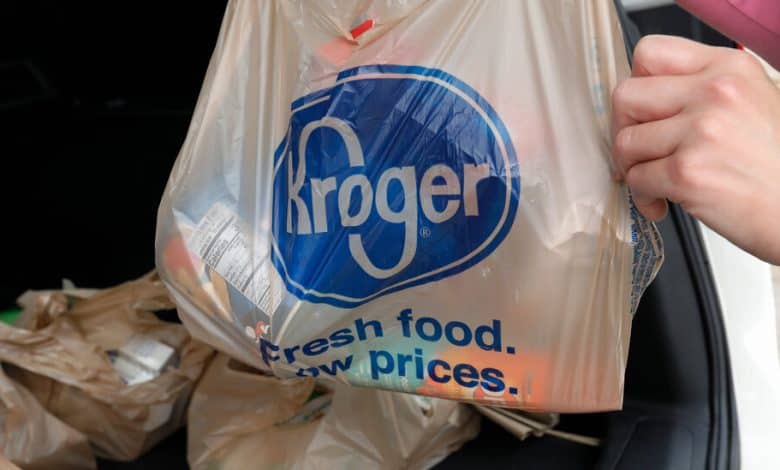The F.T.C. Boosts Biden’s Fight Against Inflation


Kroger’s “low prices” promise has come under fire after the F.T.C. and a number of states sued to block the supermarket giant’s $25 billion bid to buy Albertsons.Credit…Rogelio V. Solis/Associated Press
Kroger, Albertsons and the politics of inflation
A paradox at the heart of the U.S. economy is that consumers are feeling squeezed even as growth indicators look strong — and are taking it out on President Biden’s approval ratings.
So the White House probably cheered a move by the F.T.C. and several states on Monday to block Kroger’s $25 billion bid to buy Albertsons, arguing that the biggest supermarket merger in U.S. history would raise prices and hit union workers’ bargaining power.
The Biden administration has little influence over inflation, but it’s still getting heat. Consumers are spending the highest proportion of their income on food in 30 years, and an internal White House analysis found that grocery prices had the biggest impact on consumer sentiment.
The Fed has jacked up interest rates to a 20-year-high in an effort to cool inflation, but progress on that has slowed in recent months.
Biden is blaming big business. In a video released on Super Bowl Sunday, he went after “shrinkflation,” lashing out at companies for reducing packaging sizes and food portions without cutting prices. Biden is expected to reiterate that view in his State of the Union address next month.
The president could point to the F.T.C.’s tough approach to M.&A. The agency operates independently, but Lina Khan, the F.T.C.’s chair, has taken the most aggressive and expansive antitrust enforcement stance in decades. That may help Biden’s message with voters that he’s fighting for their interests.
